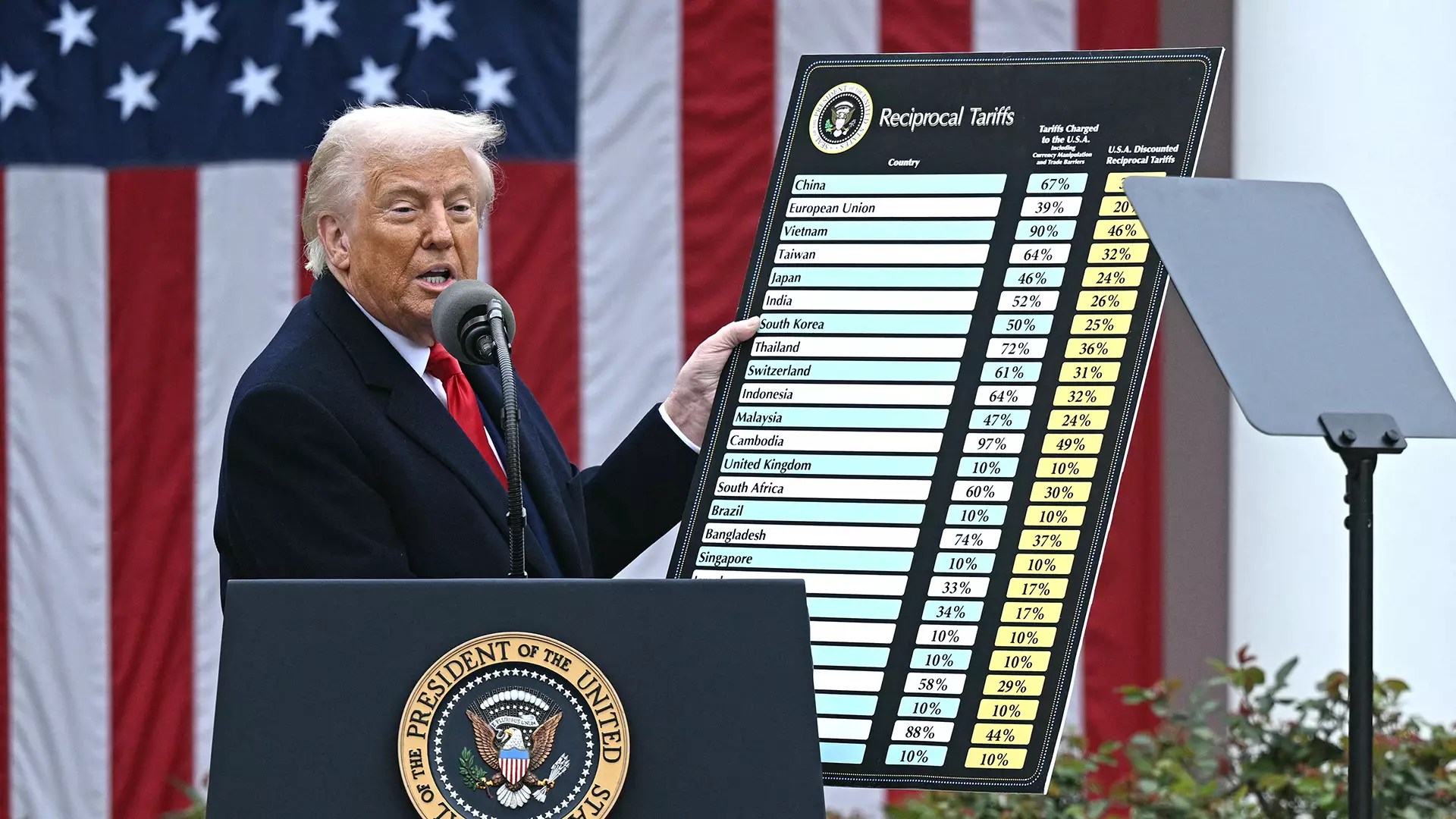In contemporary geopolitics, tariffs are often portrayed as mere economic tools, but their influence extends far beyond mere numbers. They symbolize a nation’s stance on sovereignty, security, and economic independence. When President Donald Trump signed an executive order imposing reciprocal tariffs on numerous countries, it sparked a wave of reactions that reverberate through industries and innovation hubs worldwide. Despite being deeply divisive, these tariffs underscore an aggressive approach toward reshaping international trade relations, aiming to prioritize domestic production over reliance on imported goods. For industries like semiconductors and pharmaceuticals—crucial pillars of modern tech and healthcare—the stakes are particularly high. Countries such as Taiwan, which dominate global chip manufacturing, now face the reality of tariffs that could undermine the very foundations of the tech revolution.
The Political Impact of Trade Measures on Global Relationships
Trade policies do more than protect economic interests—they are a form of strategic diplomacy. The move to exempt certain countries, like Malaysia, while targeting others such as Taiwan, signals a complex calculus reflecting geopolitical considerations. Taiwan’s 20% provisional tariff, reduced from 32%, hints at behind-the-scenes negotiations that could reshape the semiconductor supply chain. These executive orders often serve as leverage in diplomatic discussions, projecting power while simultaneously forcing allies and adversaries to reevaluate their trade dependencies. The focus on reciprocity exposes underlying tensions where economic agreements are intertwined with national security concerns. For Taiwan, a key global semiconductor player, this means navigating a delicate balance—resisting economic pressure while advocating for fairer trade conditions that preserve its vital role in the chip industry.
The Disruptive Potential for Technological Industries
The tech industry, especially the semiconductor sector, is caught at the crossroads of these policy shifts. The U.S. government’s effort to incentivize domestic manufacturing through tariffs is evident, with companies like TSMC and Samsung expanding production capabilities on American soil. Yet, these efforts reveal a gap between policy intent and practical feasibility. Building new fabs is costly and time-consuming, and even with increased domestic capacity, it’s unlikely to meet the monumental demand for high-performance chips, especially for high-end gaming hardware or critical AI applications. Furthermore, the threat of higher tariffs on chips manufactured outside the U.S. could inflate prices, making consumer electronics more expensive and potentially slowing technological progress. These tariffs threaten to fragment the global supply chain, forcing companies into a difficult choice between compliance and innovation.
The Broader Implications: Economic Strain, Industry Shifts, and Innovation Barriers
Beyond the immediate trade disputes, tariffs cast a longer shadow over innovation and economic stability. For smaller or emerging economies, tariffs can mean economic isolation or retaliation, creating uncertainty that stifles growth and development. Industries dependent on overseas components face increased costs, which may be passed down to consumers in the form of higher prices or reduced product offerings. This creates a paradox: while protecting domestic industries, tariffs risk hampering global collaboration, essential for technological breakthroughs. Moreover, the uncertainty associated with fluctuating tariff policies discourages long-term investments, slowing innovation cycles. As companies scramble to adapt—by shifting production, exploring alternative suppliers, or lobbying for exemptions—the global technology landscape risks becoming more segmented, less cooperative, and ultimately less dynamic.
The ongoing saga of tariffs underscores a fundamental truth: trade policies are deeply intertwined with a nation’s ambitions for technological dominance and economic sovereignty. While the immediate goal may be to bolster domestic industries, the collateral damage could be a fragmented global ecosystem where innovation becomes slower and more costly. Policymakers must recognize that relentless protectionism can hinder the very progress it seeks to promote. Instead, fostering open, strategic agreements—where mutual benefits are prioritized—may pave the way for resilient, innovative economies capable of leading the world into a new era of technological marvels. The coming years will reveal whether current tariff policies serve as catalysts for growth or stumbling blocks in the pursuit of global progress.


Leave a Reply